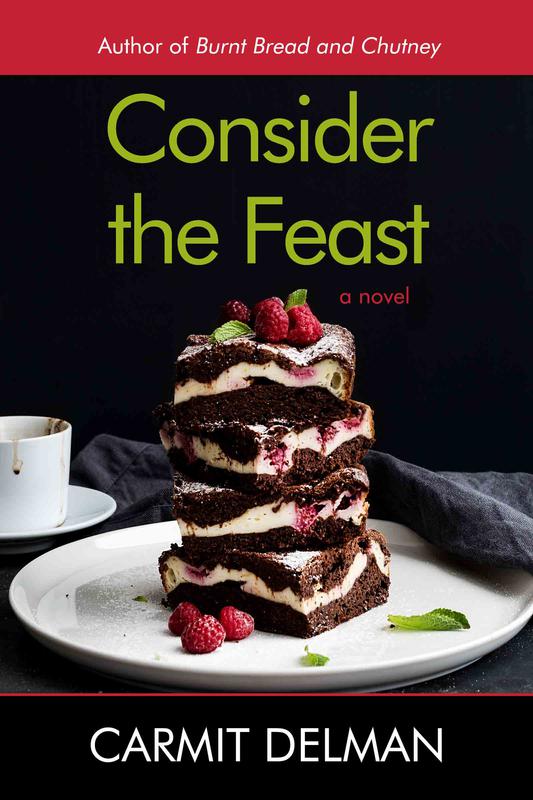© Moronic Ox Literary Journal - Escape Media Publishers / Open Books
Moronic Ox Literary and Cultural Journal - Escape Media Publishers / Open Books
Novel Excerpts, Short Stories, Poetry, Multimedia, Current Affairs, Book Reviews, Photo Essays, Visual Arts Submissions
Advertise your book, CD, or cause in the 'Ox'
No Place Like Porn For The Holidays
by Guest Editor
Carmit Delman
It’s the season for America to start remembering soup kitchens again. As winter cold sets in, our cultural machinery begins to chug and tick. Salvation Army bells ring. Almost as a complement to our own cozy holiday preparation, we collect canned goods and the odd Butterball to donate. And for a spell, we are magnanimous—feeling for those who are hungry.
Eventually, the season expires, the last bits of tinsel paper and pine leaves are swept away, and we return to our normal apathy. But it is a curious phenomenon that we can prioritize and dismiss the need around us with such regularity and ease when it fits the fantasy.
I’ll admit, I have a chip on my shoulder for the way we all move through the world, how we see ourselves and how we see others. I may or may not be the brown woman irked by the old white dude who can’t find the spaghetti at the grocery store, who asks presumptuously, “Do you work here?” I may or may not snap back at him, “No. Do you?” Not because it’s beneath me to work at the grocery. Rather, I’m irritated by the casual world-building in his assumption that of all the folks milling around, I look like I could be of service to him. As someone forever tuning in for nuances of class and culture, I’ve come to half-expect such encounters.
So it was of great surprise to me one day to hear a stuffy, well-off, middle-aged white woman I know boasting about the hamburgers she had hand-made. “1/4 pound each,” she beamed. “Not too pressed though. I shaped the patties myself.”
This is a woman who at previous points of her life had prided herself on being served, and on having help in the house and kitchen. At one point not getting her hands dirty had been a sign of her class. Yet here she was now, with a bunch of burgers, determined to stake a claim in the food preparation as her own accomplishment. I marveled at the cultural shift around food that had made it suddenly desirable for this woman to be wrist-deep in a bowl of raw meat. I was also struck by the privilege she exerted in owning or distancing herself from a space when it happened to suit her, when it fit the fantasy.
We lack for many basic essentials on the American food scene (in some places clean water and fresh produce, almost everywhere a knowledge of how our food is grown and processed, also an understanding of the cultural context of cuisines). The one thing we have no lack of is fantasy. In fact, I would say the essential empathy we need as a society eludes us because we are able to traffic so glibly in the fantasy of food.
The term food porn is often thrown around to describe the most decadent aspects of our food culture. But our norms have shifted to the point where everyday food products and experiences share some inherent qualities with full-on sexual pornography.
Food products offer endless variety, suited for every twist and taste. Like porn-stars, they can be almost cartoonish and defy logic. We have mashups of different pastries—as if a single variety of pastry is not enough. We have ever-more extreme spicy chips. We have fusions simply for the challenge of bringing together opposing tastes and absurd ingredients or far-fetched “exotic” cultures. We have foods that don’t make sense, off-season mangoes, flavors so over-used, like pumpkin spice, that we grow contemptuous of them.
Food experiences also, like sexual porn, are carefully curated so as to reject reality. Food shows are perfection, polished, perfectly timed, no mess, no clean-up. It may take a whole team on set to prepare ingredients, light, film, and clean up everything behind the unleashing of a perfect spongy cake—yet to the guy at home on his couch, it feels attainable. Even the most “homey” and accessible girl-next-door-types, even the “real moms” sipping wine as they screw up the chicken, even the most environmentally conscious and farm-to-table trends are carefully curated images. Restaurants are tailored to particular trends, designed for Instagram and over-the-top experiences that push the limits of the imagination, for the sake of visceral shock value and feeding back into its own ecosystem of celebrities and products. And is there anything that gives more self-pleasure than writing a smug, swollen Yelp review?
The nature of pornography is hard to pin down but as the Supreme Court famously explained, you know it when you see it. Glimpses of it here and there are harmless. The trouble only arises when a skewed, singular, glamorized, and unreal focus becomes the mainstream addiction and supplants reality.
Paula Hall, of the Association for the Treatment of Sex Addiction and Compulsivity shared her observations with the BBC on the Internet’s ability to provide endless sexual novelty. “What I’m seeing is increasing numbers of young men who cannot maintain an erection because they’ve wrecked their appetite with pornography, their arousal threshold goes up so a mere mortal doesn’t do it anymore.”
Too much sexual porn tends to downplay intimacy and connection, and instead emphasizes aggression. It turns other people into the unfeeling props for our own fantasy. Which is why something like Cindy Gallop’s pioneering MakeLoveNotPorn site, balancing hardcore porn with real-life sex videos is so critical. It is a remarkable thing, to interrupt a glorified, polished sex-scape with kissing, laughter, and vulnerability. It is to restore the humanity.
As we enter winter cold and the season when loneliness, need, and hunger are culturally, if briefly, recognized, we have an opportunity in food. We can balance the glam and sweeping overtures of food with recognition of the burns, spills, costs, unseen labor, and dirty dishes that come with it. We can also peel away the shininess just a little and recognize food for what it is at its core—simple sustenance, an ongoing human need and, often, hardship that is not just a side-dish to our own holiday fantasy. If we could do that, maybe we would see the forest through the trees—or the hunger through the feasts—year-round instead of for a trendy season. Certainly, there might be a more lasting, genuine empathy. Food, too, could use a sexual revolution.
Carmit Delman earned her BA in English Literature from Brandeis University and her MFA in Creative Writing from Emerson College. She has been a professor of Creative Writing and a student of food studies, and she is endlessly fascinated by the intersection of culture, gender, and food.
Carmit is also the author of Burnt Bread and Chutney: Growing Up Between Cultures, A Memoir of an Indian Jewish Girl (Ballantine). Her fiction and nonfiction have been published, anthologized, and debated in classrooms and book clubs.
Carmit lives (and eats) with her husband and three children on the outskirts of New York City.



